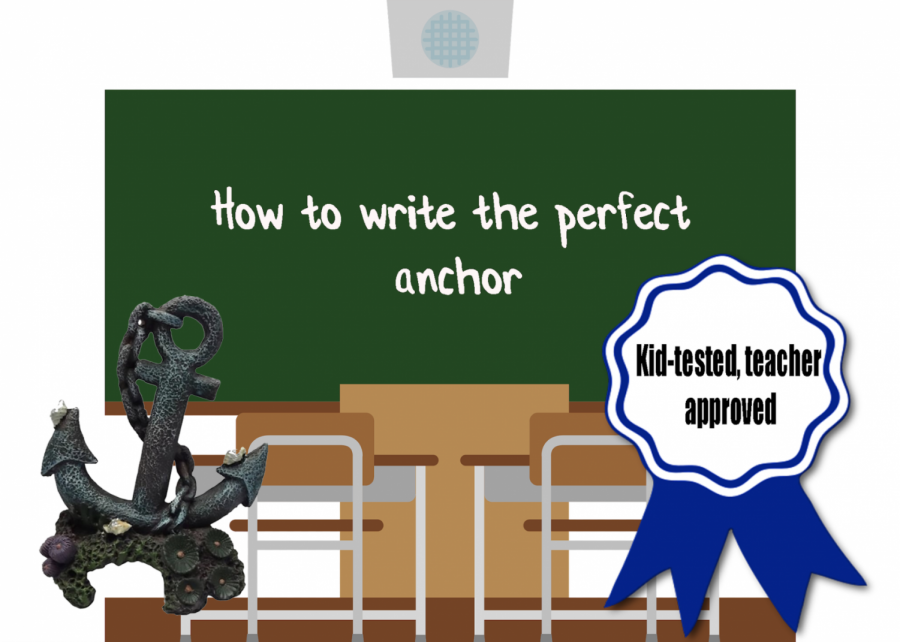How to write the perfect anchor
March 11, 2021
October is frightful at Northwood, but not for the reasons that the average person would suspect. Anchor season is fast approaching, and it is far more terrifying than any Halloween ghost story or murder mystery. Nothing thrills me more than hearing the desolate cries of inexperienced freshmen and still suffering suffermores, who have only heard horrifying tales of C+ averages and the symbolism behind Okonkwo’s yams. I too was once like you.
If you don’t want to anchor down your grade with a bad paper, you’ve come to the right place. In this essay, I will teach you how to write the perfect anchor, whether it’s by overanalyzing and misinterpreting basic quotes, using capaciously mastodonic words you don’t understand to cloud the fact that you have learned nothing about the novel or completely disregarding the three-page limit.
In the perfect anchor, the first thing that teachers always look for is deep literary analysis. It’s not enough to characterize Okonkwo as a great husband after he shoots at his wives and almost kills them—take your commentary a step further by restating exactly what the quote says (“Okonkwo is a skilled gunman”) and adding nothing of value to your essay.
Or even better, analyze the title itself! You may not have ever heard of students doing this before, but that’s because it’s simply too ingenious. The title is the best literary device because it tells you exactly what is going to happen. Here’s an example: In Chinua Achebe’s novel Things Fall Apart, things fall apart, as indicated by the word diction syntax Achebe uses when Achebe says, “Things Fall Apart” (Achebe 0).
Now that you know how to write meaningful commentary, the next thing to watch out for is word choice. To completely max out the syntax category on the rubric, you should replace every word you use with a longer, superior synonym. Utilize utterances so sagacious that the construction does not anymore resonate like the English phraseology. You should also consider taking perfectly concise sentences and adding as many filler words as you can to rub in your intelligence. However, if you furthermore are unfortunately not possibly unable to cannot find more words to insert into miscellaneous places in each sentence, try increasing the size of your periods from point 12 to 15. It’ll seem like you wrote more.
Finally, if you’re worried about the three-page limit after making all of your sentences excessively long, don’t be. Your teacher may say that they won’t look at your paper if it goes over the page limit, but the truth is, they’re just trying to scare you. They have all day to read your and 150 of your classmates’ 10-page essays. Simply submit your anchor the way it is and ignore the red box that pops up next to “Fall Anchor” on Aeries. It’s not really a missing assignment.
In conclusion, to write the perfect anchor, one must simply follow the steps that I listed in this essay. Here at Northwood, we love to read unnecessarily long paragraphs filled with empty words and confusing commentary. Your teachers are bound to be blown away by your writing skills!



![AAAAAND ANOTHER THING: [CENSORED] [REDACTED] [BABY SCREAMING] [SIRENS] [SILENCE].](https://thehowleronline.org/wp-content/uploads/2025/06/lucy-1200x800.jpg)





















































![AAAAAND ANOTHER THING: [CENSORED] [REDACTED] [BABY SCREAMING] [SIRENS] [SILENCE].](https://thehowleronline.org/wp-content/uploads/2025/06/lucy-300x200.jpg)